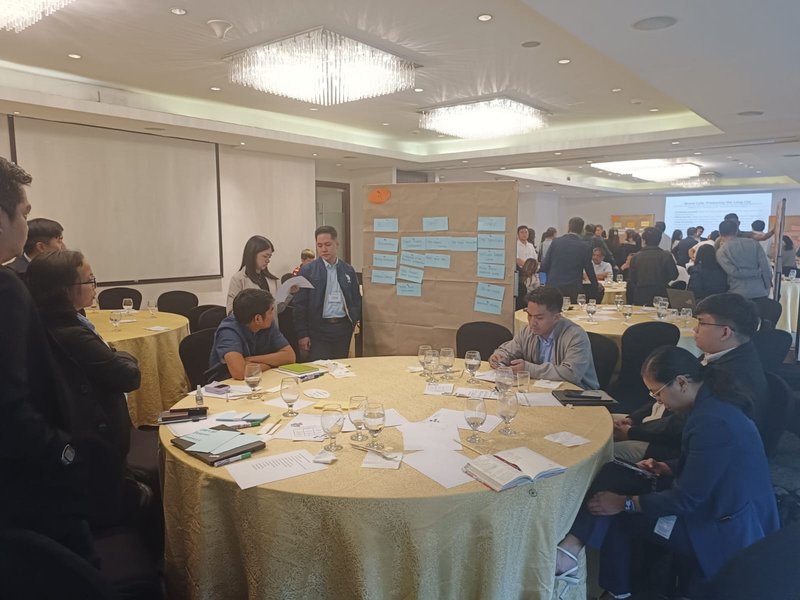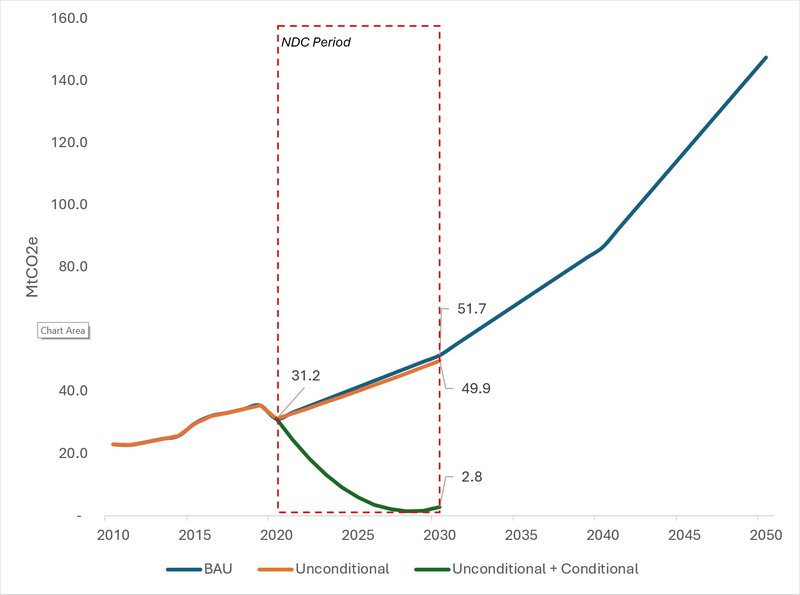ATO presents at the Kick-off Workshop for Updating the Philippine NDC
On January 22, 2025, a kick-off workshop towards updating the Nationally Determined Contributions (NDC 3.0) of the Philippines was held in Ortigas, Metro Manila. The said workshop focused on the transport components that should figure into the development of the updated NDC. The workshop was co-organized by the Philippine Department of Transportation, with support from GIZ.

ATO presented the main findings of the "Bridging the Gap: A Deep Dive into NDCs and Transport Policy Landscapes in Low- and Middle-Income Asian Economies" (LMICs) which included an analysis of the NDCs and wider transport-relevant policy documents for 25 LMICs in Asia Pacific. The analysis included 53 NDC documents (various iterations), and 291 non-NDC policy documents which were meticulously broken down and tagged to extract the types and instances of policy measures on mitigation and adaptation in the transport sector. It included 40 documents for the Philippines, containing 378 instances of 162 types of policy measures.
In 2016, the Republic of the Philippines submitted its NDC to the United Nations Framework Convention on Climate Change (UNFCCC), and is targeting to submit the updated version by September 2025. The existing NDC commits 2.71% (unconditional) and 72.9% (conditional) emissions reduction against the baseline emissions for the period 2020-2030. The mitigation commitment expressed in the NDC covers agriculture, waste, industry, energy, and transport as a whole. No specific targets, nor measures, were explicitly identified for each of the sectors.

The graph above is a representation of the NDC commitment, translated into transport-specific emissions. Based on the data recently released by the EU-JRC (EDGAR database), the Philippines transport sector emissions roughly aligns with the 2.71% (unconditional) reduction trajectory (at least up to 2023).
The updated NDC needs to reflect the other trajectory, and must account for the ambitions as contained in the other policy documents. The next NDC should consider raising the bar in terms of targets, and include sector-specific measures in order to attract additional support. Critical themes such as public transport measures, freight-related measures, transport-related adaptation, institutional and capacity-related measures, and enabling financing instruments need to figure in the discussions.